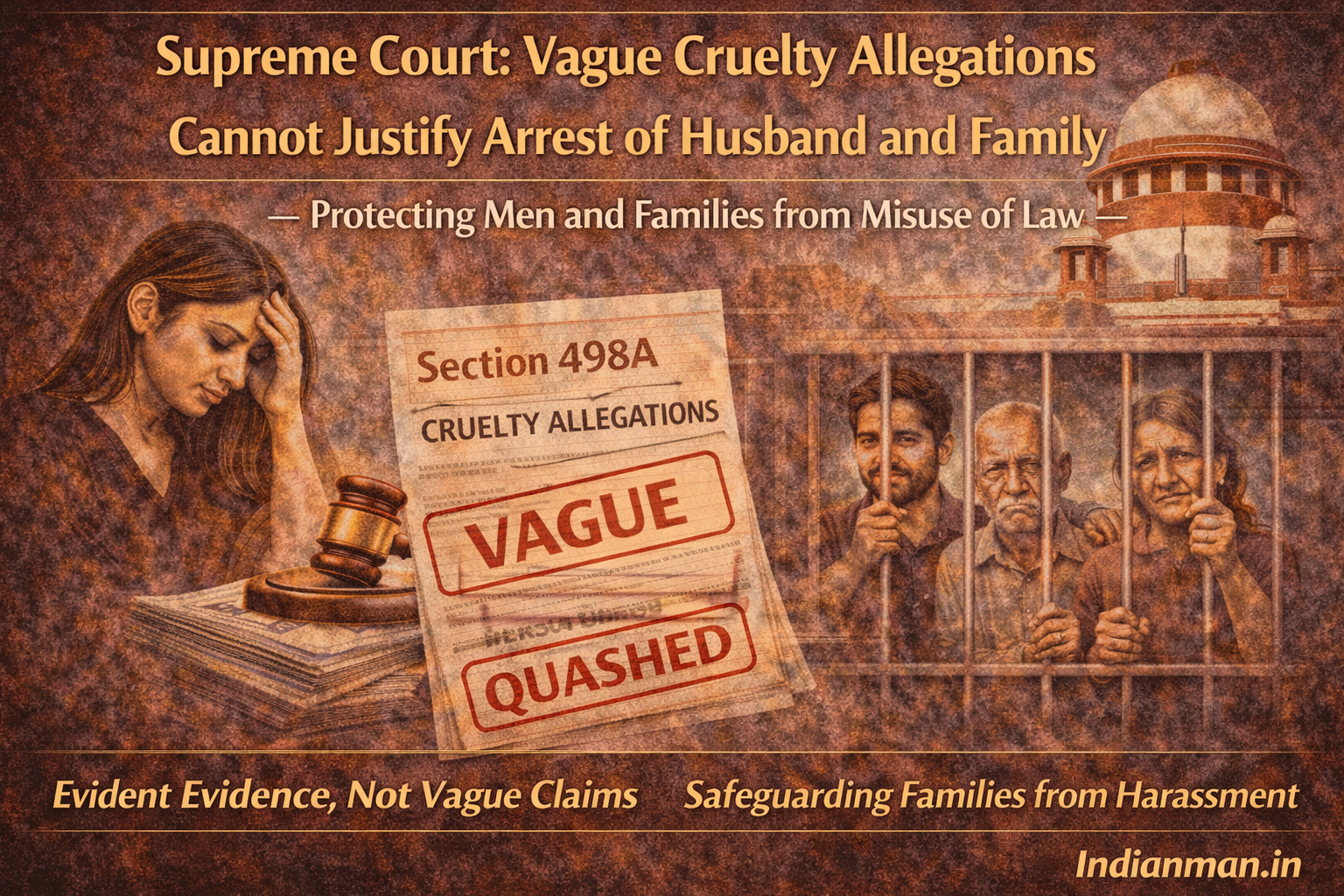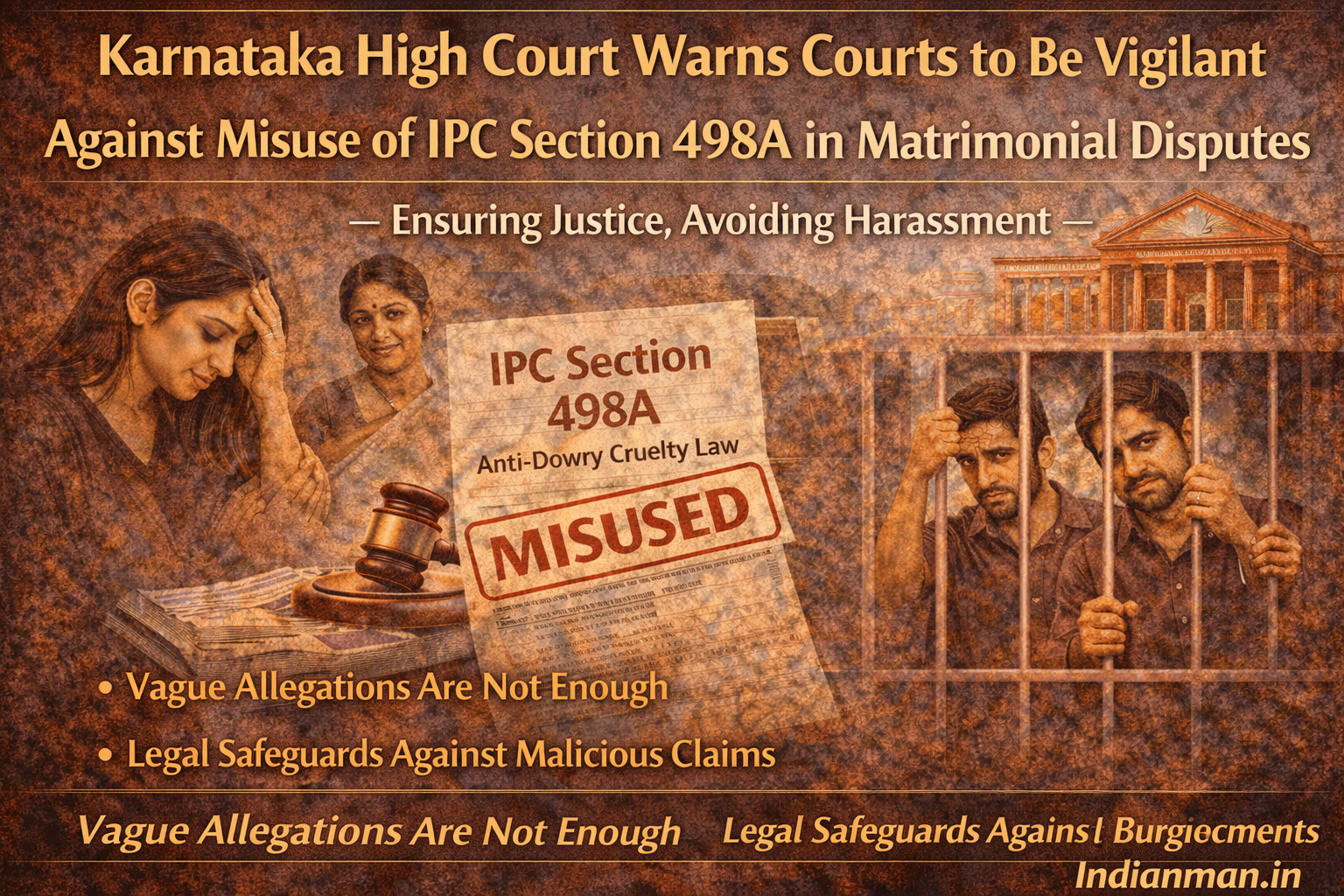In a recent ruling, the Kerala High Court clarified that minor disputes during married life cannot be classified as dowry harassment or cruelty under Section 498A of the Indian Penal Code (IPC). The court ruled that a mere demand for dowry without evidence of cruelty would not meet the requirements for charges under this section.
Justice P. Somarajan, while delivering the verdict, highlighted that both the demand for dowry and the element of cruelty must be present for Section 498A to apply. He noted that a combination of these factors is necessary to hold an accused person liable under the law.
In the case, the wife, who is the complainant, alleged that her husband had demanded additional dowry and assaulted her at their residence. However, neither the wife nor any witnesses provided clear details or evidence of the alleged assault.
The court found that there was no medical or other supporting evidence to prove any injuries or manhandling. It emphasized that in order to prove cruelty under Section 498A IPC, it must be established that the husband or his relatives subjected the wife to cruel treatment.
The court outlined the necessary conditions for an offense under Section 498A IPC:
- There must be harassment related to an unlawful demand for property or valuables by the husband or his relatives.
- The harassment should be directed at the wife or her relatives.
- The harassment must be intended to coerce the wife or her family to meet the demand, or it must result from the failure to fulfill the demand.
The court explained that the terms “harassment” and “coercion” must be interpreted based on the context of the law, not their general dictionary meanings. It referred to the definition of coercion from Section 15 of the Contract Act, which involves unlawful demands or the failure to meet such demands. The court described harassment as an act designed to coerce the wife or her family into fulfilling an unlawful demand.
The bench further stated that small instances of disagreement or minor disputes between spouses or their families do not amount to cruelty under Section 498A IPC. The court warned authorities against filing First Information Reports (FIRs) under this section based on minor disputes or differences between married couples.
The court also pointed out that cruelty must be of a nature that could drive a woman to suicide or cause serious harm to her physical or mental health. Justice Somarajan reminded that the Supreme Court has previously cautioned against frivolous cases being filed against husbands and their relatives, which can cause undue suffering and strain on the marriage.
With no substantial evidence to prove any acts of cruelty or dowry-related violence, the Kerala High Court overturned the conviction and sentence of the accused. The court dismissed the case and acquitted the husband.
This ruling underscores the importance of clearly distinguishing between trivial marital disputes and serious cases of dowry harassment and cruelty.
Case: Kerala High Court – Section 498A IPC
Be a part our social media community:
Facebook: https://www.facebook.com/IndianMan.in?mibextid=ZbWKwL
Instagram:
https://www.instagram.com/indianman.in?igsh=MWZ2N3N0ZmpwM3l3cw==



